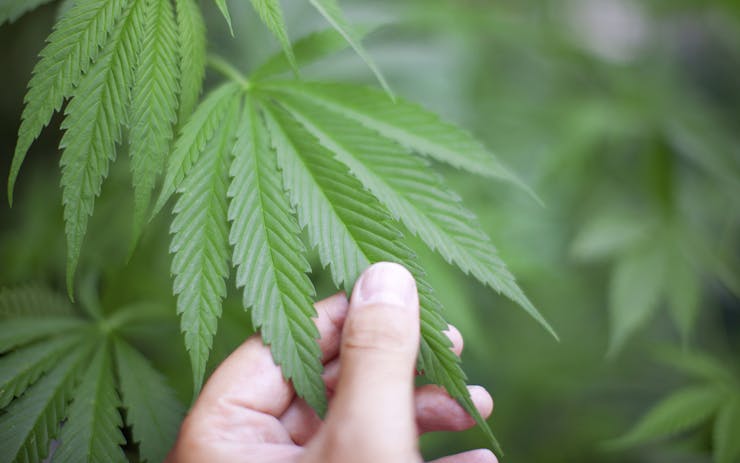He started selling hash from a derelict farm in Friesland, the Netherland’s most northern and stubborn province, in 1970. Almost half a century later, Doede de Jong is the country’s best known cannabis farmer — whose work is still illegal.
Doede de Jong, 67, is a proud man with strong principles, a genuine love of plants, and a great sense of humor.
He doesn’t mind being called an old hippie. To him, the core values of the sixties—freedom, tolerance, and the right to self-determination—are worth standing up for more than ever.
Back in the seventies, De Jong used to sell the hash he bought on regular trips to Amsterdam at cost, without any profit margin. One of his friends eventually convinced him to at least add ten cents to the price of every gram to cover his bus and train tickets. He wasn’t in it for the money then, and that never changed.
“Abolish this damned and disrespectful ban on cannabis!”
When, in the early eighties, people started growing potent, mostly American cannabis strains on Dutch soil, De Jong quickly joined in. He has loved plants and gardening since his childhood, and growing his own cannabis combines his two biggest passions. As early as 1991, De Jong was featured in the local Frisian newspaper, the Leeuwarder Courant, talking openly about his growing activities. He berated the paradox that still characterizes the Dutch cannabis policy: coffeeshops can sell cannabis, but nobody is allowed to grow it.
De Jong became a national celebrity after a 2011 documentary called Nederwiet (Dutch Weed) aired on public TV. It shows the grower tending to his plants in a self-built greenhouse, manicuring the crop with one of his sons and explaining how he sells part of it to a coffeeshop in the nearby city of Leeuwarden. In the most memorable scene, De Jong passionately defends his case in court, wearing a T-shirt with the Frisian flag and the text “Baas in eigen brein” (“Boss in your own brain”).

Doede de Jong in a scene from the 2011 documentary “Nederwiet”
He repeatedly questions the attorney general how it can be possible that cannabis is sold in 13 coffeeshops in the city of Leeuwarden. Where does the cannabis come from? He urges the court to break the spell by not sentencing him:
“For what is the advantage to sentence me? What is the gain? Which interests are served? There aren’t any. The coffeeshop will have to find another grower; he might go to someone with a machine gun and hand grenades. We do not want this, do we? There must be someone who is willing to stand firm and keep his back straight. Someone who says: We cannot work with this hypocritical justice. This law is at odds with reality. Because the reality is that cannabis is sold. And if the rules are at odds with reality, we must adapt the rules to reality, not the other way round.”
Notwithstanding De Jong’s eloquent plea, judges found him guilty. But the tables turned in October 2015, when the Leeuwarden court refused to sentence him to any punishment. In its decision, the court stressed the ideological aspect of the case, honoring De Jong’s lifelong battle for legalization.
A happy ending? Not yet. In a separate civil case, the Dutch Justice Ministry has issued De Jong a fine of more than €220,000 ($247,000). The matter is still awaiting appeal. If De Jong really has to pay this amount, he will have to sell the farm he and his wife Kicky so lovingly restored after moving there in 1970. They effectively will be ruined.
De Jong stays optimistic and devotes his time to writing op-eds, working with the Dutch legalization organization VOC and tending to his garden in Appelscha. In his most recent article, published in the Leeuwarder Courant, he writes:
“To have an inclusive, committed society, it is wise to strive for a peace-loving, tolerant society, in which dialogue based on mutual respect is central and the right to self-determination is respected. I would therefore advise the government to immediately stop this sordid display and let liberalism triumph. Abolish this damned and disrespectful ban on cannabis!”





